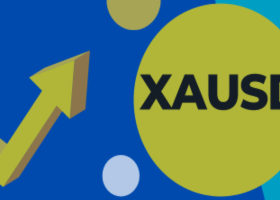
(19 September 2019) DAILY MARKET BRIEF 2:BoJ statement unchanged as economy stable
It seems that market participants have been left unimpressed by the statement of the Bank of Japan, pushing the demand for JPY
higher. Without much surprise, the BoJ has kept its short- and long-term interest rates at 0.10% and around 0% respectively while
confirming current JGB purchases of JPY 80 trillion and JPY 6 trillion in Japanese shares per year. The odds of seeing the BoJ expanding
stimulus beyond next policy meeting in 31 October will strongly depend on economic conditions, as it keeps status quo on “maintaining
interest rates at low levels at least through spring 2020”. While confirming that it is paying closer attention to the possibility of losing
momentum toward achieving its 2% inflation target, the BoJ appears willing to change course of its forward guidance if necessary – a move
that could potentially depend on the outcome of negotiations with the US. Furthermore, the release of trade data, although slightly better
than previously expected, are likely a sign that a worsening of trade conditions might be a catalyst for the BoJ to act in accordance.
As both US President Donald Trump and PM Shinzo Abe are expected to meet on 25 September at the UN General Assembly in New York, Japan
Foreign Minister Toshimitsu Motegi is pressing the US to confirm that no national security tariffs of 25% will be imposed on Japanese
vehicles and auto parts. In counterpart, Japan would agree to reduce tariffs on US agricultural products, including beef imports, in line
with the multilateral Trans-Pacific Partnership terms of 26.60% from actual 38.50%. Yet the imposition of quotas for US beef estimated at
240000 tones for 2019 and higher looking forward, although comprising most of US beef imports, might stay a major impediment in the
negotiations. In addition, the declaration made by Japanese Economy Minister Yasutoshi Nishimura that the government is willing to
support SMEs and agricultural businesses depending on the outcome of current trade talks and agreement signed does not appear convincing.
Without mentioning upcoming consumption tax hike to 10% (+2% increase) starting from October, it seems that the BoJ is expected to face
further pressures looking forward, albeit further easing would likely worsen the Japanese financial systems whose margins are eroding.
Considering the release of August exports and imports data at -8.20% (prior: -1.60%) and -12% (prior:-1.20%), the BoJ silence is most
likely to stop at its next monetary policy meeting in October as inflation data published on Friday is likely to disappoint while an
escalation of downside risks to the economy would lead to further easing.
By Vincent Mivelaz


